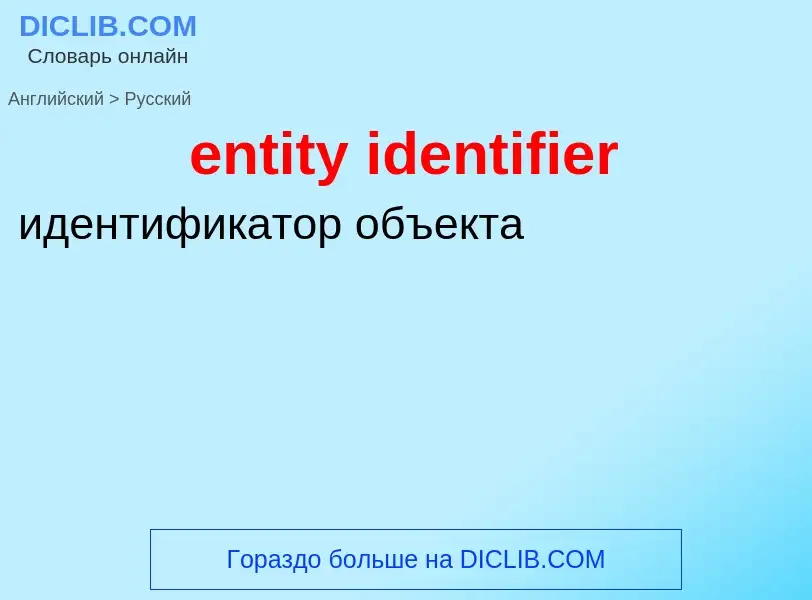ترجمة وتحليل الكلمات عن طريق الذكاء الاصطناعي ChatGPT
في هذه الصفحة يمكنك الحصول على تحليل مفصل لكلمة أو عبارة باستخدام أفضل تقنيات الذكاء الاصطناعي المتوفرة اليوم:
- كيف يتم استخدام الكلمة في اللغة
- تردد الكلمة
- ما إذا كانت الكلمة تستخدم في كثير من الأحيان في اللغة المنطوقة أو المكتوبة
- خيارات الترجمة إلى الروسية أو الإسبانية، على التوالي
- أمثلة على استخدام الكلمة (عدة عبارات مع الترجمة)
- أصل الكلمة
entity identifier - ترجمة إلى الروسية
общая лексика
Globally Unique Identifier
глобально уникальный идентификатор
идентификатор, присваиваемый объекту регистрации в системном реестре Windows
ويكيبيديا
In United States patent law, those applying for a patent, i.e. applicants, and patentees may claim a particular status depending on the number of their employees. The fees to be paid to the patent office depend on the applicant's status. The statuses include the "large entity" status and the "small entity" status. The "micro entity" status is a further status, which was introduced with the Leahy–Smith America Invents Act (AIA), enacted in 2011.
The small entity status allows small businesses, independent inventors, nonprofit organizations to file a patent application and maintain an issued patent for a reduced fee—a 60% reduction. Under 13 C.F.R. § 121.802(a), an entity qualifies as a "small business concern", and so qualifies for small entity status, if its number of employees, including affiliates, does not exceed 500 persons. Small Business Administration (SBA) regulations, discussed below, define "employees" and "affiliates".
If an organization or individual qualifies for small entity status, claiming such status is relatively simple. The person seeking such status needs to simply file a verified statement in the patent application prior to paying the first fee as a small entity. Any subsequent payments only need to include a statement where such status has changed.
The concept of "small entity" also exist in other jurisdictions, such as in Canada.


